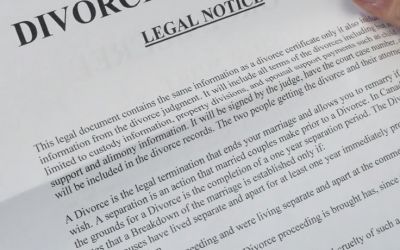
Divorce in the Philippines in 2025: What Expats Need to Know
Table of Contents ▼
Are You a Filipino Living in the UAE, Saudi Arabia, Qatar, Kuwait, Bahrain, or Oman Wondering About Divorce in the Philippines in 2025?
If so, you’re not alone. Many Filipino expats in the GCC are asking the same question: “When will divorce become legal in the Philippines?”
While you might need Philippines divorce consultancy, let’s dive into the latest updates on the Philippines’ journey toward legalizing divorce in 2025.
The Big Question: Is Divorce Legal in the Philippines Yet?
To get straight to the point, divorce is still not legal in the Philippines as of 2025. However, there’s exciting news: we’re closer than ever to making it a reality.
The Philippines, alongside Vatican City, is one of the only two places globally where divorce is still illegal. But things are about to change, and if you’re a Filipino expat in cities like Dubai, Riyadh, Doha, Kuwait City, Manama, or Muscat, this change could directly affect you.
What’s Happening Right Now with Philippine Divorce Laws?

The path toward legal divorce in Philippines has been long, but progress is finally being made.
House Bill 9349, known as the “Absolute Divorce Act,” passed the House of Representatives with overwhelming support in May 2024. A total of 131 lawmakers voted in favor of the bill.
At the moment, the bill is waiting in the Senate for debate and approval. It’s a significant step forward, but we’re still waiting for the final decision before 2025 divorce in the Philippines becomes a reality.
Why Does This Matter for Filipino Expats in the GCC?
If you’re living and working in the Gulf, you’re likely familiar with how family laws differ here compared to the Philippines. Many of you are asking: “What if I want to end my marriage while working abroad?”
Currently, your options are limited and costly:
- Legal separation (no remarriage allowed)
- Annulment (which can be extremely expensive)
- Nullification (only applicable in specific cases)
The proposed 2025 divorce law in the Philippines would provide an additional option, legal divorce, allowing you to remarry if you wish.
What Would the New Divorce Law Actually Allow?
Let’s take a closer look at what this law means in practical terms. The proposed law aims not only to legalize divorce but also to ensure it’s fair and accessible.

Grounds for Divorce That Make Sense
The new law will allow individuals to file for divorce under circumstances that truly break marriages, such as:
- Domestic violence (physical, emotional, or economic abuse
- Abandonment for over a
- Infidelity or having children outside the
- Addiction to drugs, alcohol, or
- Bigamy (if your spouse married someone else
- Living apart for five years without
- Irreconcilable differences
Special Protections for Families
The law also includes key protections for Filipino families:
- A 60-day cooling-off period for reconciliation
- Child custody decisions based on what’s best for the
- Fair property division in line with Philippine
- Spousal support for up to three years when
- Free legal aid for those who can’t afford high legal fees
What About Filipinos Who Are Already Divorced Abroad?
This is especially important for many Filipino expats: if you’ve divorced a foreign national in a Gulf country such as the UAE, Saudi Arabia, or another GCC nation, the new law could make it easier for your foreign divorce to be recognized back home.
At present, getting a foreign divorce recognized in the Philippines is an overwhelming legal process. The new law will streamline this, which is especially beneficial for overseas Filipino workers stuck in legal limbo.
Timeline: When Will 2025 Divorce in the Philippines Actually Happen?
The big question on everyone’s mind: When will divorce finally become legal in the Philippines?

While we can’t give an exact date, here’s where things stand:
- The bill needs to pass the Senate (this is the critical step we’re waiting on).
- Then, it will go through a bicameral conference to resolve any differences between the House and Senate versions.
- Finally, it will either be signed by President Marcos Jr. or automatically become law.
With the current Congress ending in June 2025, there’s pressure to finalize the legislation soon. If the bill doesn’t pass by then, supporters will need to restart the process with the new Congress in July 2025.
How This Affects Your Life in the Gulf
Whether you’re in Dubai, working in Saudi Arabia’s oil fields, managing projects in Qatar, or anywhere else in the GCC, these changes could affect your family planning and legal situation.
Many Filipino expats have expressed feeling stuck, unable to move forward with their personal lives due to restrictive laws back home. The proposed divorce law in 2025 could offer a fresh start for those facing difficult marriage situations while building their careers abroad.
What Should You Do Now?
While waiting for the Senate’s action, here’s how you can prepare:
- Stay up to date on the latest developments
- Consult with family law experts if you’re dealing with marriage challenges
- Familiarize yourself with your current options under Philippine law
- Plan ahead for when the new law might be enacted
Getting Professional Help
Family law can be tricky, especially when dealing with international elements. Whether you’re in Abu Dhabi, Jeddah, or anywhere else in the Gulf, it’s essential to seek proper legal advice.
At Easy Wedding, we understand the challenges faced by Filipino expats. Our network of family law experts can guide you through current options while preparing for the anticipated 2025 changes in Philippine divorce laws.



